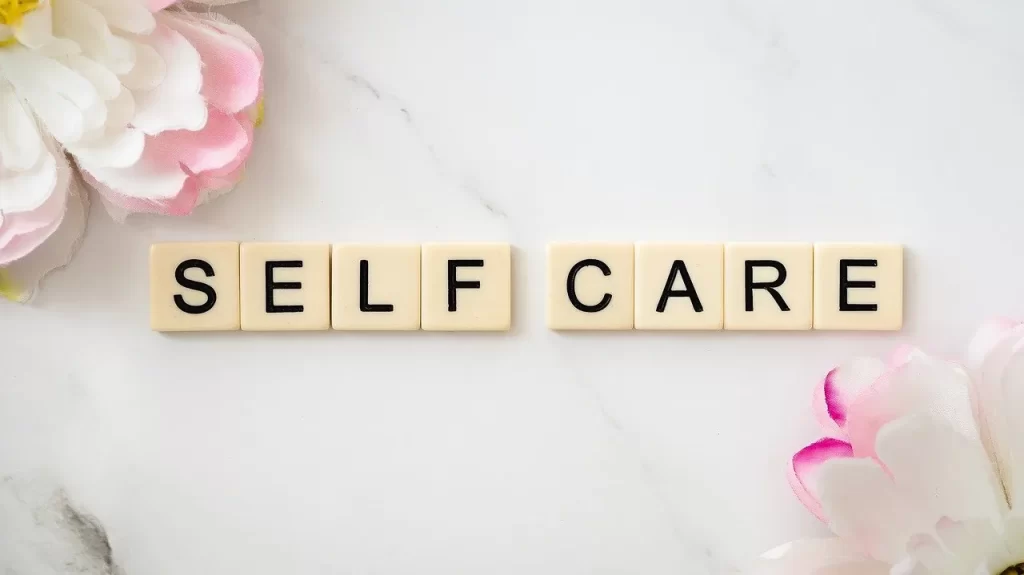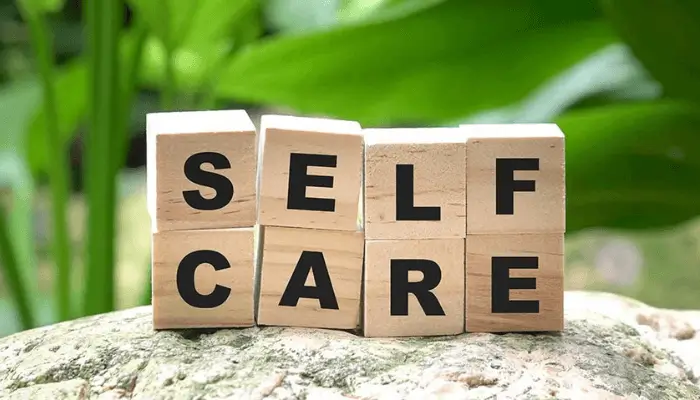Introduction to Self-Care and Relationships
What is Self-Care?
Self-care is the mindful practice of maintaining or improving one’s health, well-being, and happiness. It is about treating yourself with the same love and consideration you would show others.
Self-care often includes activities that encourage relaxation, refreshment, and personal development. These activities may include exercise, meditation, reading, bathing, or engaging in hobbies that bring joy and fulfillment.
The Importance of Healthy Relationships
Mutual respect, trust, and understanding are the foundation of healthy relationships. They necessitate effort, commitment, and open communication from both parties. A healthy relationship improves your well-being and increases your overall happiness and life satisfaction.
Prioritizing both partners’ personal and collective well-being forms a strong, resilient, and long-lasting partnership based on trust, communication, and mutual support. Below are 10 reasons why self-care is crucial for a healthy relationship.

1. Improved Mental Health
Taking care of your mental health is critical to maintaining a healthy relationship. Prioritizing self-care reduces the risk of burnout, anxiety, and depression. A healthy mind enables you to approach your relationship with clarity, patience, and positivity.
Self-care techniques like mindfulness meditation, deep breathing exercises, and journaling can dramatically enhance your mental health and emotional stability, allowing you to deal with relationship difficulties with resilience and grace.
2. Boosted Self-Esteem and Confidence
Participating in self-care activities increases your self-esteem and confidence. When you are confident, you are more likely to communicate assertively, set boundaries, and express your needs and desires in a relationship.
Self-care practices like exercise, a healthy diet, and positive affirmations can boost your confidence and self-esteem, allowing you to appreciate your uniqueness and significance in your relationship.
3. Better Stress Management
Life can be stressful and take a toll on your relationship. Self-care allows you to effectively manage stress by adding relaxation practices like meditation, deep breathing, and exercise to your daily routine. These stress-reduction exercises can help you relax, recharge, and maintain a calm and balanced temperament, allowing you to face relationship issues with clarity and focus.

4. Increased Emotional Resilience
Self-care increases your emotional resilience, allowing you to recover from setbacks and challenges in your relationship. It provides you with the tools and coping mechanisms to handle arguments, disagreements, and misunderstandings gracefully and maturely.
By practicing self-care, you can increase your self-awareness, emotional regulation, and problem-solving abilities, allowing you to maintain a peaceful and supportive connection with your partner.
5. Enhances Communication Skills
Effective communication is the foundation of any healthy relationship. Participating in self-care activities such as journaling, therapy, or couples counseling can help you develop your communication skills and express your ideas, feelings, and worries more clearly.
Active listening, empathy, and assertive communication can help you develop open, honest, and respectful conversations with your spouse, deepening your connection and understanding.
6. Fosters Independence and Personal Growth
Self-care promotes independence and personal growth. It allows you to pursue your interests, hobbies, and ambitions outside of your relationship, which is essential to maintaining a healthy balance of individuality and togetherness.
Investing in self-discovery, self-improvement, and self-expression can enrich your life and personal identity, resulting in a more satisfying and fulfilling connection with your partner.

7. Encourages Boundaries and Respect
Setting and keeping boundaries is important for a good relationship. Self-care teaches you to prioritize your needs and establish clear boundaries, fostering a relationship based on mutual respect, understanding, and consideration.
By adhering to your own and your partner’s boundaries, you may establish a secure, supportive, and harmonious environment in which both partners feel respected, heard, and appreciated.
8. Balances Priorities and Time Management
A good relationship requires effective time management and priority-setting. Self-care enables you to prioritize your needs, responsibilities, and commitments, ensuring that you provide adequate time and attention to your spouse and relationship.
You can have a balanced and meaningful life that supports and strengthens your connection with your partner by practicing time management, organization, and prioritization.
9. Strengthens Intimacy and Connection
Self-care improves connection and intimacy within a relationship. When you take care of yourself, you become more present, attentive, and sensitive to your partner’s wants, desires, and emotions, which strengthens your emotional and physical bond.
Nurturing your emotional, physical, and spiritual well-being can help you form a stronger and more meaningful bond with your partner, resulting in a loving, supportive, and happy relationship.

10. Set a Positive Example for Your Partner
Practicing self-care sets a good example for your partner, encouraging them to prioritize their health and happiness. It promotes a culture of self-love, self-respect, and mutual care, strengthening your relationship’s foundation.
By modeling healthy behaviors, attitudes, and habits, you can inspire and motivate your partner to prioritize self-care, resulting in a more balanced, peaceful, and loving relationship.
Practical Self-Care Tips for Relationship Success
To incorporate self-care into your relationship, consider the following practical tips:
- Prioritize “Me Time”: Set aside time for yourself to relax, recharge, and pursue your interests and hobbies.
- Communicate Openly: Express your needs, desires, and boundaries openly and honestly with your partner.
- Engage in Relaxation Techniques: Practice meditation, deep breathing, or yoga to reduce stress and promote relaxation.
- Seek Professional Help: Consider therapy or couples counselling to improve communication, resolve conflicts, and strengthen your relationship.
- Celebrate Achievements and Milestones: Celebrate your personal achievements and relationship milestones to foster positivity, appreciation, and gratitude.

Bottom Line
Practicing self-care is essential for sustaining a healthy relationship. Engaging in this activity has several benefits, including enhancing one’s mental well-being, increasing self-assurance and belief in oneself, improving the ability to communicate effectively, promoting personal development and independence, fostering the establishment of boundaries and respect, facilitating the management of priorities and time, strengthening emotional closeness and connection, serving as a positive role model for one’s partner, encouraging mutual respect and comprehension, and reinforcing long-term dedication.
By giving importance to self-care, you can foster personal growth and cultivate strong and satisfying relationships based on trust, effective communication, and mutual respect.
FAQs
What is self-care?
Self-care refers to the intentional efforts to maintain or enhance one’s physical and mental health and overall happiness. It comprises activities that foster relaxation, revitalization, and individual development.
Why is self-care important for healthy relationships?
Engaging in self-care is crucial for maintaining healthy relationships, as it enhances one’s mental well-being, elevates self-worth and assurance, improves communication abilities, promotes individual development and freedom, encourages the establishment of boundaries and respect, facilitates effective prioritization and time management, strengthens intimacy and connection, and serves as an excellent example for your partner.
How can self-care improve communication in a relationship?
Self-care can improve communication in a relationship by helping partners express their thoughts, feelings, and concerns more clearly and effectively. It promotes open, honest, and assertive communication, fostering mutual understanding, respect, and empathy.
What are some practical self-care tips for relationship success?
Some practical self-care tips for relationship success include prioritizing “me time,” communicating openly with your partner, engaging in relaxation techniques, seeking professional help through therapy or couples counselling, and celebrating personal achievements and relationship milestones.
How does self-care promote long-term commitment in a relationship?
Self-care promotes long-term commitment in a relationship by strengthening mutual respect, understanding, and support. When both partners prioritize their individual and collective well-being, they build a strong, resilient, and enduring partnership based on trust, communication, and mutual care.

